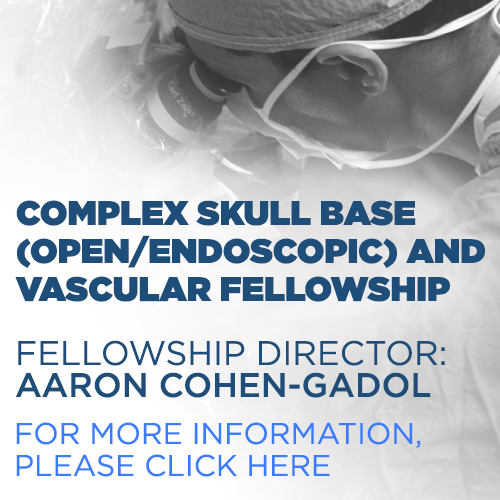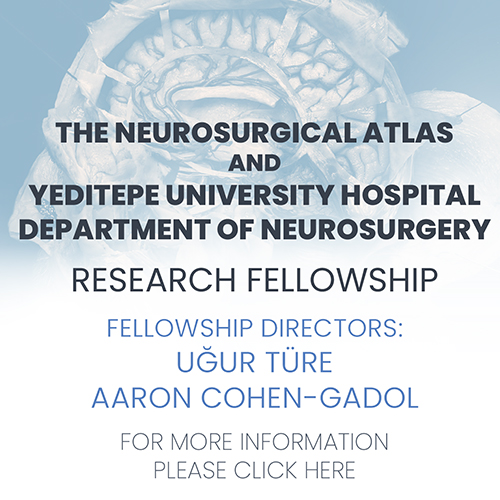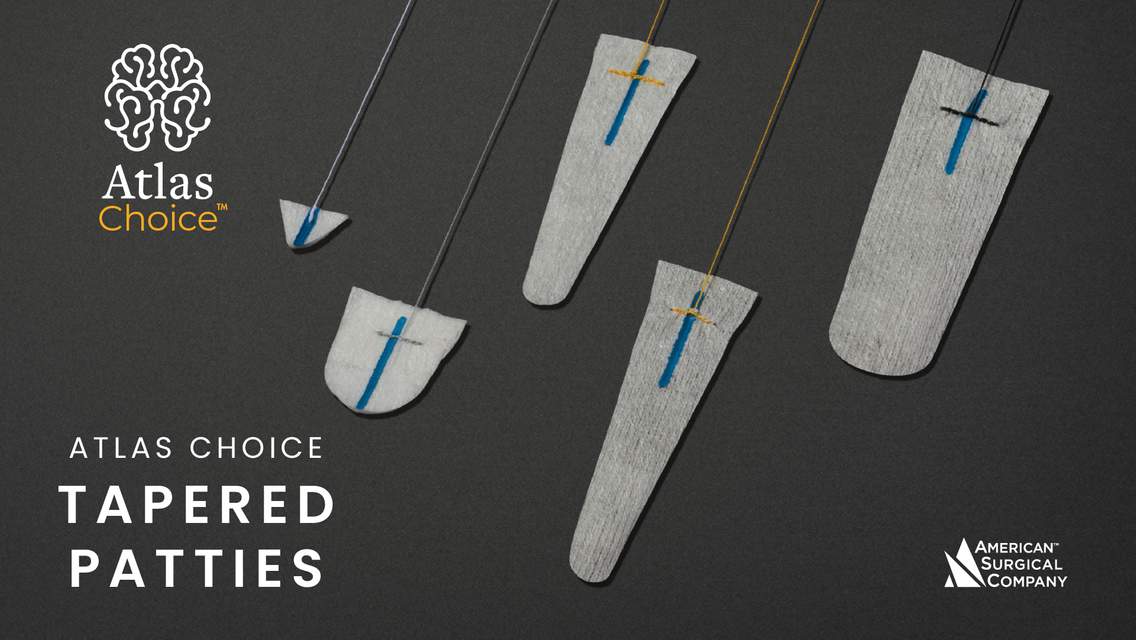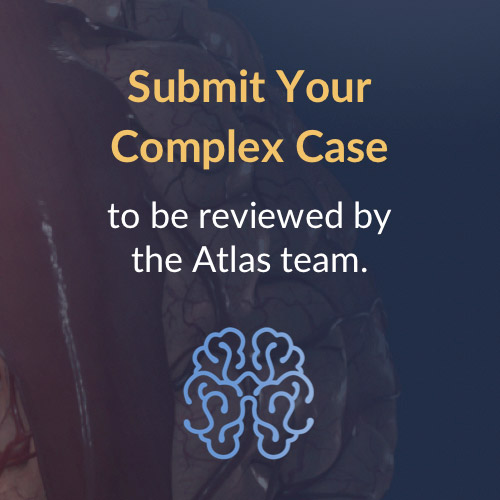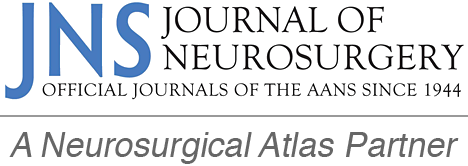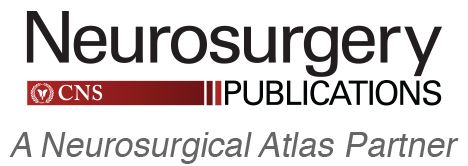Preclinical and Early Clinical Years Free
Decision to Go Into Neurosurgery
In general, the earlier one decides to pursue a competitive specialty like neurosurgery, the better. An early decision serves to focus the efforts of the applicant on the singular goal of matching into a specific specialty. In the case of neurosurgery, it ensures that the applicant prepares by obtaining desirable USMLE Step 1 scores, positive evaluations on third year clerkships, high-quality research with neurosurgical mentors, and regular interactions with neurosurgical faculty and residents.
If you are even remotely considering neurosurgery (or another competitive specialty,) you should pursue the above goals avidly. If you later decide that neurosurgery is not your specialty of choice, your high USMLE Step 1 scores, good clerkship grades, and quality research will likely render you competitive in any field you pursue. If, in contrast, you set lower ambitions during your preclinical years, it will negatively impact your future application to neurosurgery if you do decide that it is your desirable career option after all.
Attitude For Success
Attending medical school, becoming a physician, and ultimately becoming a neurosurgeon are all special privileges that should not be taken for granted. Regardless of where you are in the journey – completing a tedious basic science class, a difficult research project, a rotation in a field in which you have no interest – approach the task at hand with joy, curiosity, and vigor. Take pride in all of the work that you do – do not be the stereotype of the smug neurosurgery applicant who puts down other specialties and avoids work outside his or her own interests.
When faced with challenging tasks, put your head down and get to work – there is no benefit in complaining during your medical education. Someone always has it harder than you do: the intern overwhelmed with true responsibilities for the first time, the junior resident facing endless pages and consults, the senior resident operating deep into the night, the junior attending balancing a new practice with research and a young family, and last but not least, the patient, who faces devastating disease with courage and resilience.
Complaining will never help your performance and will only reflect poorly on you. Although frustration is inevitable at times, a successful medical student and physician is continuously thinking of solutions rather than dwelling on problems.
If you do not understand something, read about it. If after reading, you still do not understand it, or would like to learn more about it, ask a peer, a resident or an attending on service. Although asking questions is unfortunately sometimes believed to be a sign of ineptitude among students and residents, this is simply not true. Asking thoughtful, well-phrased questions is a way to demonstrate your ability to clarify gaps in understanding.
Preclinical Grades and USMLE Step 1
Preclinical years are important for several reasons. First, if your institution has preclinical grades, starting medical school with good grades will be noticed on your residency application and will affect your eligibility for AΩA (if a chapter exists at your institution). Second, developing efficient study habits and time management skills will serve you well in any future career, especially in an intensive training program such as neurosurgical residency.
Medical school involves a different type of learning than college, and residency will be different still from medical school; your many clinical and research responsibilities as a resident may force your education into the back seat. This limits the time you will have to develop a solid neurosurgical knowledge base. If the foundation of knowledge and study skills you have built during your preclinical years is solid, you will be more successful during your clinical years. It is the chronic daily acquisition of knowledge in medical school and beyond that produces success on board exams, classroom tests, and “pimping” questions frequently encountered during the clerkship years.
One of the major benefits of studying for USMLE Step 1 (and, eventually, Step 2) is the solidification of this knowledge foundation as you are repeatedly exposed to important concepts through practice questions. Additionally, your Step 1 score is paramount in your residency application. It is often used for initial screening when offering neurosurgery residency interviews, and a good score may separate you from others later during the application process as it demonstrates dedication to study, perseverance, and intellectual ability to understand and process large amounts of information. Again, it proves superior time management skills that are so important for success in neurological surgery.
In the spring of your second year of medical school, you should make preparation for the USMLE Step 1 exam your top priority. Set a goal and make a practical study plan designed to achieve that goal. Most successful applicants take four to eight dedicated weeks of study time to prepare for Step 1. There is a clear correlation between the number of practice questions a student does and his or her score; take advantage of the National Board of Medical Examiners’ practice tests as well as the many commercial question banks available (e.g. UWorld, Kaplan, etc.). Your medical school may have institutional access to one or more question banks, and your school’s advising staff may be able to offer individualized assistance in creating a study plan or calendar. Seek out these resources early!
The average Step 1 score for those who have matched into neurosurgery over the last several years has steadily increased to 249 (as of 2016). A below-average score will not keep you from matching in and of itself, but you may have to demonstrate aptitude in several other dimensions of your application to compensate. Plan ahead and do well!
Summer Research Between MS1 and MS2 Years
Although summer research is not absolutely required, it is beneficial to participate in educational activities during your time off between the first and second years of medical school. These activities can include medical missions, volunteering, and/or research. Research is generally highly valued for your application.
In fact, applicants who successfully matched into neurosurgery in 2016 reported an average of 4.8 research experiences and 13.4 abstracts, presentations, and publications – well over the averages of 3.0 and 4.8, respectively, for all matched US seniors. While it would be ideal to participate in neuroscience-related research, any research, even if unrelated to neuroscience, is beneficial early on.
Early medical student research introduces students, who haven’t pursued research in college or high school, to the methods involved in academic research. Understanding and implimenting this practice requires repitition. Second, this early exposure will allow for more efficient research production during the later years of medical school. Third, this is a prime opportunity to demonstrate that you finish projects that you start. This is one of the most important qualities of a neurosurgery applicant, as repeated demonstration of perseverance is highly valued. Finally, if this research is related to neurosurgery, you will be on your way to establishing an enduring relationship with a mentor who will be one of your most important professional advocates.
Please see Section 4 – Conducting and Presenting Research for more information on exploring research opportunities during medical school.
MS3 Clerkships
While they are not the most important aspect of your application, grades and evaluations from surgery, neurology and other non-neurosurgical clerkships matter. At some medical schools, clinical grades become much more impactful on a student’s overall GPA. For example, at many medical schools, the internal medicine rotation may affect your GPA four times as much as a 10-week human anatomy class during the first year of medical school. While achieving “honors” in every class alone is not sufficient to match in neurosurgery, such grades are yet another opportunity to accumulate accolades. Beyond grades, narrative evaluations from your rotations do make it into the medical school performance evaluation, or dean’s letter, that residency program directors may read when assessing your candidacy. A good sign is when evaluations from several rotations all state how much your attendings would have loved to convince you to join their specialty.
The importance of the clerkship years is further underscored by the fact that many medical schools do not assign grades for preclinical coursework. As such, your scholastic achievement in comparison to applicants across the country is highly dependent on your USMLE scores and your clerkship performance and evaluations. These factors again demonstrate dedication, perseverance, and a solid fund of knowledge. Clinical rotations also assess other especially important qualities: your work ethic, professionalism and system-based practice.
As a neurosurgical trainee-to-be, it is imperative that you respect your colleagues and the staff with which you associate. The way you interact with others and the way you make others feel has a significant impact on your ability to lead and be successful. Self-awareness is the most important part of emotional intelligence. I highly recommend studying and practicing emotional intelligence. Civility and kindness is the backbone of your reputation as an upcoming surgeon. Backbiting or taking credit where it is not due can have a detrimental influence on the way others view you. Be cognizant of how you treat everyone: people above you, people below you, and your peers. Opportunities to teach and mentor, when used properly, can allow for the development of professional relationships and demonstrate your desire to be a team player by understanding the adage that the best way to elevate yourself is to elevate everyone around you. In summary, leadership is about influencing and inspiring others.
While solid performance across clerkships will not separate you from the competition, poor performance will. You should strive to have as many “honors” (or its equivalent) and as few “passes” as possible. If you perform poorly during your clerkship years, be prepared to discuss the reasons for these shortcomings during your interviews.
If your medical school allows for flexibility in scheduling clinical clerkships, you can optimize your rotation schedule to prepare yourself for success during neurosurgery rotations. Applicants have found the following tips helpful:
- Begin your first clinical year with less demanding rotations, such as pediatrics or psychiatry, in order to become familiar with how the inpatient setting and outpatient clinics operate in lower-stress environments.
- Take internal medicine before surgery. This will help prepare you to take care of pre- and postoperative surgical patients, which is an incredibly important part of your eventual surgical training. In addition, many applicants have found that the NBME “shelf” exam in surgery has a heavy focus on internal medicine – especially gastrointestinal disorders.
- Take neurology before your first neurosurgery rotation. This may seem obvious, but success in neurosurgery depends on being able to conduct a thorough, but rapid, neurological exam and interpret the findings accurately.
- If at all possible, schedule a short elective in neuroradiology before your first neurosurgery rotation (or even before neurology). Interpreting brain and spine imaging is another foundation of neurosurgical practice, and many of the questions you will be asked on your subinternships will involve interpreting imaging. Focus on interpreting non-contrast head CTs and understanding the basic differences between MRI sequences (e.g. T1, T2, etc.).
- Take an intensive/critical care rotation before your first neurosurgery rotation, if possible. An exposure to critically ill patients suffering from neurological or neurosurgical disease will be helpful in preparation for your subinternship.
- Try to shadow a neurosurgery junior resident at some point during medical school to gain a basic understanding of the flow of a neurosurgical service. Observe pre-rounds, rounds, academic conferences, operating room etiquette, postoperative care, consults in the ED or in other wards, and the sign out process to gain a preliminary understanding of your future responsibilities in residency. Also, attempt to take call early on, so you can get a sense of what this entails.
If your medical school allows you to “block” periods, you will need to reserve two or three months during the summer after your first clinical year for away rotations, and an additional two or three months from November to January of your second clinical year for interviews. See Section 5 – Subinternships and the Final Year of Medical School for more information on preparing for and scheduling neurosurgery subinternships and away rotations.
Extracurricular Activities
You should focus on one or two extracurricular activities that you are passionate about. It is not necessarily important for your activities to be related to neurosurgery; passion and achievement in any activity is predictive of success in intensive specialties like neurosurgery, as it correlates with motivation on the job. “Token” extracurricular involvement is generally not helpful for applying to neurosurgery.
Specifically, you should not apply for leadership positions in several clubs if your sole purpose is to stand out to residency admission committees. Engage in extracurricular activities that are meaningful to you in order to broaden your skills as a leader and team member. When it comes time to apply to residency, avoid the temptation to list activities you were only peripherally involved in; you may be asked about them during interviews, which can lead to uncomfortable situations.
Hobbies
The importance of having activities that interest you outside of neurosurgery and medicine cannot be overstated. Rather than one-dimensional applicants focused only on their careers, program directors are looking for applicants who have a well-rounded background and have a broad perspective on life that can only be cultivated through reading, cultural enrichment, socialization and travel.
Not only are these activities good ways to relieve stress and relax during your free time, you will be asked about them during interviews! In fact, besides the inevitable question about why you want to pursue neurosurgery, the most frequently asked question on interviews will be “what do you do in your spare time?” Your future co-residents in particular, will appreciate having a fun-loving, interesting person as a colleague, rather than someone who can only talk about neurosurgery and little else.
Fitness, athletics, and competitive sports have traditionally been viewed as helpful for applicants in neurosurgery, as they develop teamwork, fine motor skills, and the ability to remain focused and persevere while remaining socially effective in the face of challenging circumstances. Neurosurgeons who possess both mental and physical stamina find the long hours and years of training less grueling and are better equipped to combat symptoms of burnout.
Under no circumstances should you indicate that you take part in hobbies or activities in which you have limited experience. Stating that you like to play musical instruments or take part in other activities that require fine motor skills could be ruinous if found to be an embellishment. It is not unheard of for interviewers to ask applicants to demonstrate their proficiency at an indicated skill; many surgeons are pianists, for example, and certain chairmen are known to have pianos in their office that they ask applicants to play! As with other parts of your application, it is also imperative that you are truthful when talking about how you spend your free time.
Please login to post a comment.

